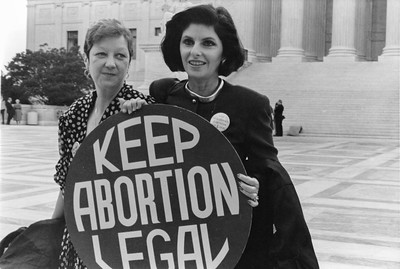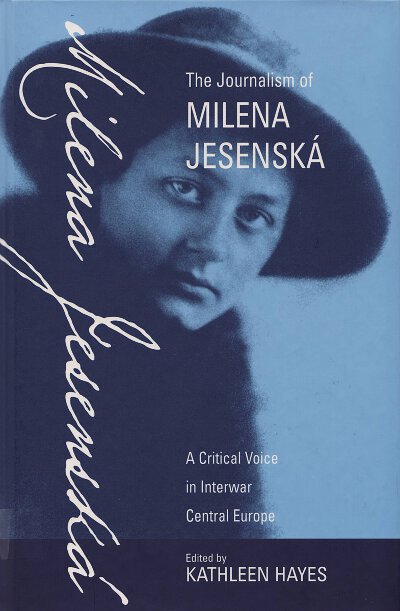
Readings on Abortion



 Milena Jesenská (10 August 1896 – 17 May 1944) was a Czech journalist, writer, editor and translator. She is popularly remembered as one of Franz Kafka’s great loves, and Jesenská’s translation of The Stoker was the first translation of Kafka’s writings into any foreign language.
Milena Jesenská (10 August 1896 – 17 May 1944) was a Czech journalist, writer, editor and translator. She is popularly remembered as one of Franz Kafka’s great loves, and Jesenská’s translation of The Stoker was the first translation of Kafka’s writings into any foreign language.
After the occupation of Czechoslovakia by the German army, Jesenská joined an underground resistance movement and helped many Jewish and political refugees to emigrate. In the Czech Republic, she is remembered as one of the most prominent journalists of the interwar period and as a brave one: in 1939 she was arrested for her work in the resistance after the German occupation of Bohemia and Moravia, and died in Ravensbrück concentration camp in 1944.
It is estimated that Jesenská wrote well over 1,000 articles but only a handful have been translated into English. In The Journalism Of Milena Jesenská: A Critical Voice in Interwar Central Europe, her own writings provide a new perspective on her personality, as well as the changes in Central Europe between the two world wars as these were perceived by a woman of letters. The articles in this volume cover a wide range of topics, including her perceptions of Kafka, her understanding of social and cultural changes during this period, the threat of Nazism, and the plight of the Jews in the 1930s.
On 15 March 1939, the German Wehrmacht moved into Prague, and the occupation would not end until the surrender of Germany following World War II. Below is an excerpt from the book The Journalism Of Milena Jesenská: A Critical Voice in Interwar Central Europe.
Continue reading “Milena Jesenská: Prague, the Morning of 15 March 1939”
As we enter a New Year full of political and economic uncertainty, opportunities in education, and the integrity of evidence-based opinion and decision-making are under attack globally from a populist but neo-liberal philosophy seeking to advance, with depressing success to date, the cause of individualism over the social fabric.
While there will continue to be questions over the character, competence and temperament of many of the world’s political leaders over the coming years, Berghahn will continue to champion the values of accessible scholarly learning, and the spirit of protest, reform, equality and tolerance.
To that end, and with the Women’s March on Washington in mind, we are delighted to offer, in the form of a New Year tonic, a 60% discount off all Gender Studies titles, purchased via our website over the next 7 days. At checkout, simply enter the code NYGEN17.
The books featured below form just a small selection from our complete list of Gender Studies titles. For a full list, please visit our website.
 Today, September 4th, is the anniversary of the Fourth World Conference on Women in Beijing, where over 4,750 delegates from several countries were in attendance. Issues discussed at the conference included poverty, education, health, economic rights, and more.
Today, September 4th, is the anniversary of the Fourth World Conference on Women in Beijing, where over 4,750 delegates from several countries were in attendance. Issues discussed at the conference included poverty, education, health, economic rights, and more.
From UNWomen.org: “The United Nations has organized four world conferences on women. These took place in Mexico City in 1975, Copenhagen in 1980, Nairobi in 1985 and Beijing in 1995. The last was followed by a series of five-year reviews. The 1995 Fourth World Conference on Women in Beijing marked a significant turning point for the global agenda for gender equality. The Beijing Declaration and the Platform for Action, adopted unanimously by 189 countries, is an agenda for women’s empowerment and considered the key global policy document on gender equality.”
To celebrate the anniversary of this historic conference and its benefit to women worldwide, we’d like to invite you to glance a free sample issue of Aspasia, or sign up for a 60-day free trial by clicking here.
About Aspasia